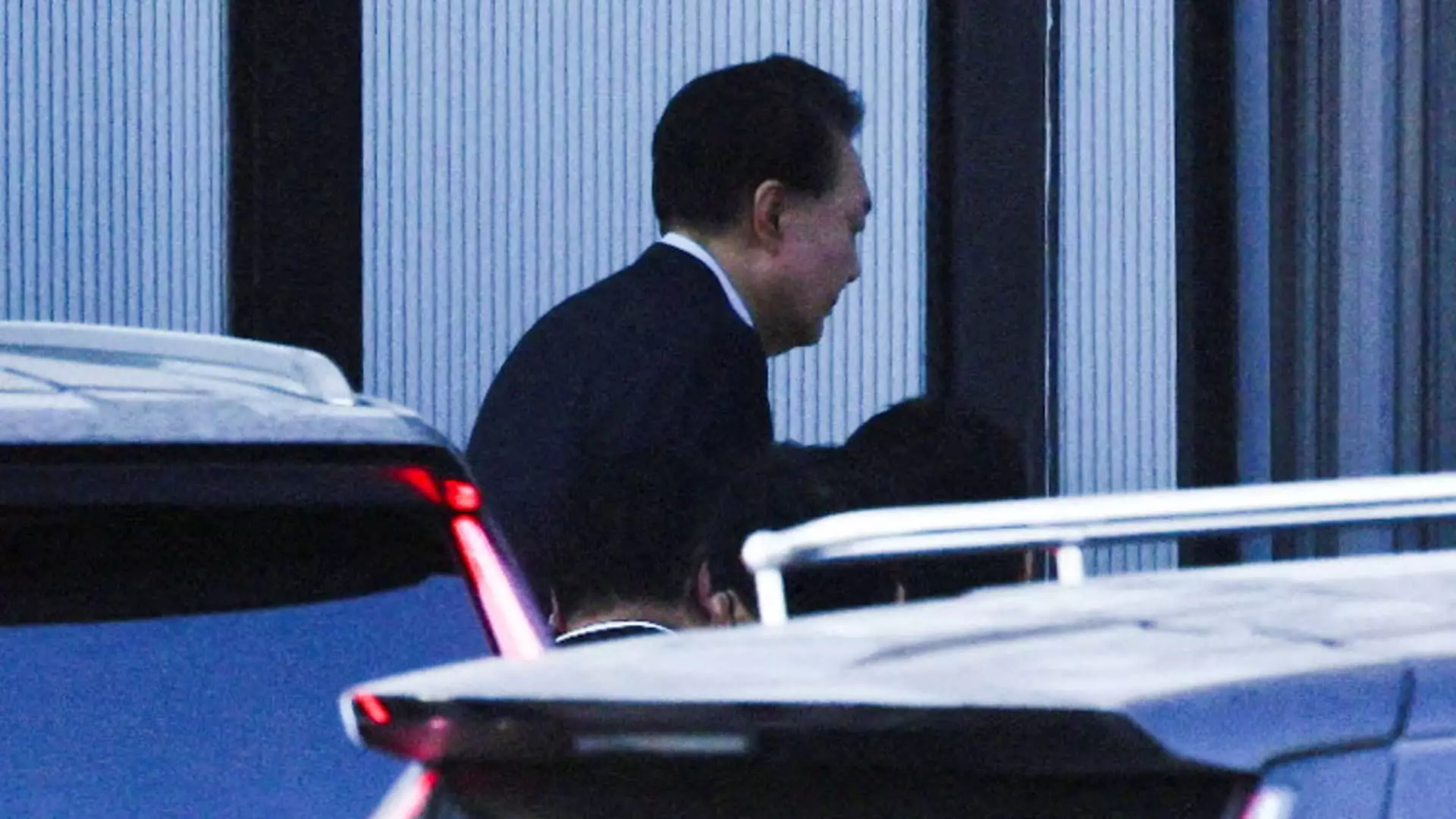In a significant unfolding of political drama, South Korea finds itself grappling with the unprecedented impeachment of former President Yoon Suk Yeol. His court appearance on a recent Saturday marked a momentous occasion, as he became the first sitting president in the nation’s history to be arrested. This extraordinary development is tied to serious allegations, including insurrection, stemming from his controversial declaration of martial law on December 3. Such events command a critical examination of not only Yoon’s actions but also the institutions that govern South Korea’s political landscape.
The gravity of the accusations against Yoon is underscored by the fact that insurrection is among the few offenses from which an incumbent president does not enjoy immunity. The Corruption Investigation Office for High-ranking Officials has been at the forefront of the probe, seeking to extend Yoon’s detention for an additional 20 days to gather more evidence. Given Yoon’s refusal to cooperate with investigators up to this point, the necessity of the request becomes evident. Yoon’s anxieties concerning the legitimacy of his martial law declaration and the ensuing accusations result in a precarious situation that could redefine the country’s political future.
During a nearly five-hour court session, Yoon had the opportunity to address the allegations and provide his perspective. His attorney conveyed that Yoon took the stand to elucidate his position and reinforce his claims regarding the legitimacy of his actions during the martial law declaration. Such engagements signify a substantial moment in South Korea’s judicial process, where the intersection of law and politics creates a complex narrative. Interestingly, Yoon’s decision to attend the hearing reflects a deeper desire to counteract the allegations against him and reclaim his tarnished honor as a former leader.
The Response from Supporters
Outside the courtroom, a fervent demonstration of public support unfolded. Yoon’s supporters, gathered in numbers near the court, advocated for his release, asserting their faith in the legal framework that underpins their political system. The scene was charged with emotion, evidencing the visceral connection many citizens still feel toward Yoon, despite the serious nature of the allegations. This public sentiment raises questions about the broader implications of political loyalty in South Korea and how it influences perceptions of institutional legitimacy.
The Broader Implications
As the court deliberates on Yoon’s case, the ramifications extend beyond the man himself to impact South Korea’s political landscape as a whole. The events are a reminder of how fragile democracy can be, and they highlight the essential role that accountability plays within the framework of government. Regardless of the outcome, this high-profile courtroom drama is likely to resonate within the populace, prompting discussions about governance, integrity, and the unwavering quest for justice in a nation still navigating the complexities of its political identity.
Yoon’s saga encapsulates a historical turning point; his case may ultimately serve as a precedent, reminding even the highest officials that accountability cannot be sidestepped, no matter their position.

Leave a Reply